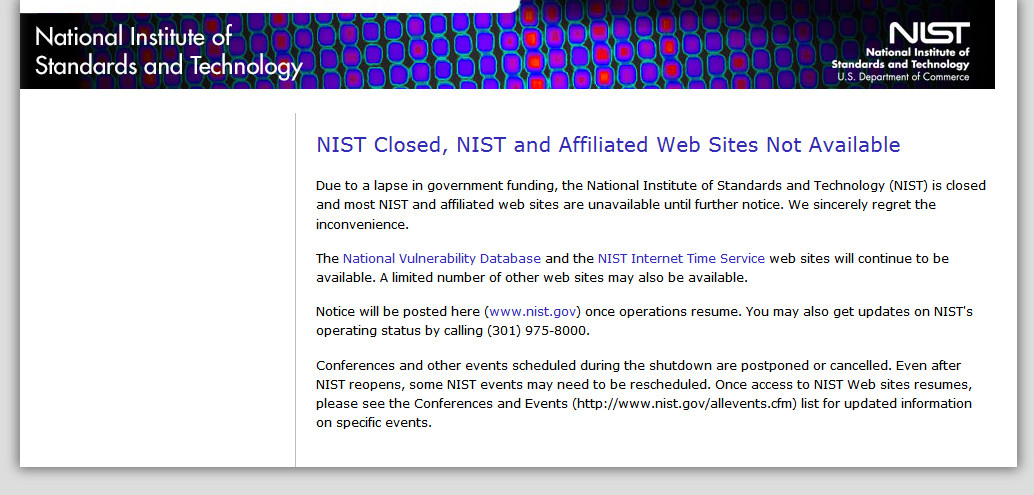For those who didn't notice yet, in the USA, the National Institute of Standards and Technology(NIST) has been shut down temporarily because of the poor fiscal situation of the USA.
The text at their site reads:
NIST Closed, NIST and Affiliated Web Sites Not Available
Due to a lapse in government funding, the National Institute of Standards and Technology (NIST) is closed and most NIST and affiliated web sites are unavailable until further notice. We sincerely regret the inconvenience.
The National Vulnerability Database and the NIST Internet Time Service web sites will continue to be available. A limited number of other web sites may also be available.
Notice will be posted here (www.nist.gov) once operations resume. You may also get updates on NIST's operating status by calling (301) 975-8000.
Conferences and other events scheduled during the shutdown are postponed or cancelled. Even after NIST reopens, some NIST events may need to be rescheduled. Once access to NIST Web sites resumes, please see the Conferences and Events (http://www.nist.gov/allevents.cfm) list for updated information on specific events.
Here's a screenshot of the NIST website (2013-10-02T12:00:00Z):

On the positive side, I could imagine more people coming to Crypto.SE as a result of that.
Anyway… even though it was tempting, I want to avoid "asking for opinions" so I am not going to ask how reliable and trustworthy NIST is, when looking at the fact that government funding obviously has a huge impact on them. Still, a question remains:
What impact will the closure have on the future of cryptography? (think: "crypto-development")
